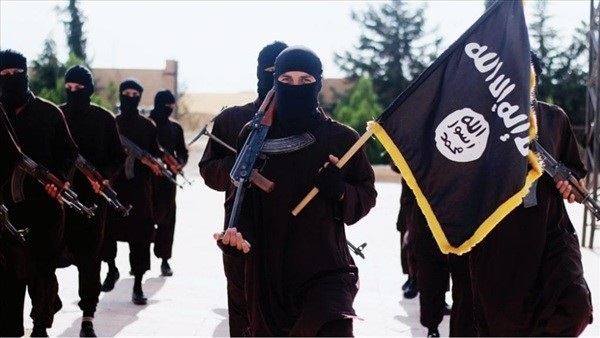ISIS intelligence collapses: Four axes confuse terrorist organization in Iraq

ISIS is facing successive strikes, whether by targeting its
hideouts, liquidating its members, or hunting down its leaders. In the latest
of these operations, the Iraqi authorities announced the arrest of a senior ISIS
leader in the capital, Baghdad, known as the “Wali (governor) of Tal Afar”.
According to the Iraqi Security Media Cell, Iraq’s intelligence
agency, through accurate intelligence information and the cooperation of
citizens, was able to arrest the Wali of Tal Afar in a security operation in
Baghdad.
As part of targeting terrorist leaders, the Baghdad
Operations Commander announced two weeks ago the killing of four terrorists
belonging to ISIS, including the “Wali of Tarmiyah”.
New strategies
In special statements to the Reference, Iraqi military and
strategic expert Alaa al-Nashou attributed the operations carried out against
ISIS leaders to what he described as “new strategic plans” achieved by the
intelligence effort, noting that these plans are built on the basis of
completing the circles, in a security sense, by linking all areas of operations
in which ISIS terrorist action is expected within the framework of proactive
action through accurate information about the work of intelligence cells in the
areas, with the presence of security awareness for the community that suffered
from the policies of ISIS, so observation and monitoring of all suspicious
movements was one of the most important priorities of intelligence work, in
accordance with to the well-known principle of “make doubt a path to certainty.”
Nashou explained that the confrontation with ISIS has
developed a lot, and there have been major transformations in terms of
patterns, behavior, and security and military work.
After the organization had the principle of attack and surprise in many of its
terrorist operations, today it is turning to the principle of defense and even
withdrawal to avoid losses at the level of individuals or moral and material
capabilities, while narrowing the areas for operations that could be a suitable
environment for work.
ISIS in security’s grip
Nashou stressed that this fear and apprehension on the part
of ISIS members made them lose many of the security and combat characteristics
that they had enjoyed, which made them more limited in their movement, weak in
their performance, and easily fell into the grip of the security and
intelligence forces, which have gained much experience in knowing the methods
and movements of the terrorist organization and its leaders.
He added that through security and military research into
all of the organization’s strategies and mobilization, ISIS is moving under
different security and military theories that are subject to internal and
external variables, and these variables greatly affected the performance of the
work of the Iraqi security and intelligence services from 2014 until 2020, and
after that the transformations in this performance began due to accumulations
of international intelligence supporting Iraq in the war against ISIS.
Continuous training for security and intelligence
personnel
According to Nashou, all of this comes in conjunction with
the increase in continuous training of Iraqi security and intelligence
personnel, which has made the confrontation with ISIS ongoing and has achieved
fruitful and significant results in striking and destroying all active forces.
The organization has also suffered major setbacks, especially at the level of
suicide operations inside cities, its pursuit and destruction of its bases in
remote areas, and turning to new pages of work, which is targeting the
organization’s leaders and monitoring all their movements.
Four critical factors
Nashou believes that the above is the basis for reducing the
terrorist organization’s power and eliminating it permanently, after cutting
off all its resources and factors, which could be a new case for
reorganization, especially some internal forces that are working to return Iraq
to square one and with the help of some regional forces that are working for
its interests, in addition to four decisive factors: the weakness and collapse
of the intelligence system of ISIS, the weakness of the regional support that
controlled the regions intelligence-wise due to international support for Iraq
in possessing the security and military initiative, reaching important points
in the structure of the terrorist organization and exposing its leadership, and
conflicts and problems among ISIS leaders, which greatly influenced the
performance of the organization's work in Syria and Iraq.









